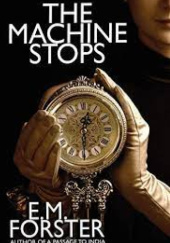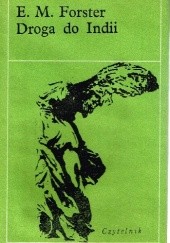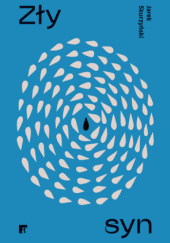Powrót do Howards End

310 str.
5 godz. 10 min.
- Kategoria:
- literatura piękna
- Tytuł oryginału:
- Howards End
- Wydawnictwo:
- C&T Crime & Thriller
- Data wydania:
- 2018-05-25
- Data 1. wyd. pol.:
- 1977-12-01
- Data 1. wydania:
- 1992-11-26
- Liczba stron:
- 310
- Czas czytania
- 5 godz. 10 min.
- Język:
- polski
- ISBN:
- 9788374703673
- Tłumacz:
- Ewa König-Krasińska
- Ekranizacje:
- Powrót do Howards End (1992)
- Inne
Bez powieści Edwarda Morgana Forstera trudno sobie wyobrazić wielkość literatury brytyjskiej.
Siostry Schlegel, Margaret i Helen, to wyemancypowane intelektualistki. A właściciele Howards End, wiejskiej posiadłości, to rodzina Wilcoxów, która dorobiła się majątku, ale do kręgu elit jeszcze im daleko.
Konfrontacja tych rodzin na tle przemian w Anglii początku dwudziestego wieku to historia szalonych uczuć i równie nagłych zerwać kochanków, to zaskakujące oświadczyny wdowca, to szokujące decyzje kobiet, które nie mogą pogodzić się z niesprawiedliwością społeczną.
A wszystko zaczyna się w Howards End w obliczu zerwanych zaręczyn Helen i Charlesa Wilcoxa…
Dodaj do biblioteczki
Porównaj ceny
Porównywarka z zawsze aktualnymi cenami
W naszej porównywarce znajdziesz książki, audiobooki i e-booki, ze wszystkich najpopularniejszych księgarni internetowych i stacjonarnych, zawsze w najlepszej cenie. Wszystkie pozycje zawierają aktualne ceny sprzedaży. Nasze księgarnie partnerskie oferują wygodne formy dostawy takie jak: dostawę do paczkomatu, przesyłkę kurierską lub odebranie przesyłki w wybranym punkcie odbioru. Darmowa dostawa jest możliwa po przekroczeniu odpowiedniej kwoty za zamówienie lub dla stałych klientów i beneficjentów usług premium zgodnie z regulaminem wybranej księgarni.
Za zamówienie u naszych partnerów zapłacisz w najwygodniejszej dla Ciebie formie:
• online
• przelewem
• kartą płatniczą
• Blikiem
• podczas odbioru
W zależności od wybranej księgarni możliwa jest także wysyłka za granicę. Ceny widoczne na liście uwzględniają rabaty i promocje dotyczące danego tytułu, dzięki czemu zawsze możesz szybko porównać najkorzystniejszą ofertę.
W naszej porównywarce znajdziesz książki, audiobooki i e-booki, ze wszystkich najpopularniejszych księgarni internetowych i stacjonarnych, zawsze w najlepszej cenie. Wszystkie pozycje zawierają aktualne ceny sprzedaży. Nasze księgarnie partnerskie oferują wygodne formy dostawy takie jak: dostawę do paczkomatu, przesyłkę kurierską lub odebranie przesyłki w wybranym punkcie odbioru. Darmowa dostawa jest możliwa po przekroczeniu odpowiedniej kwoty za zamówienie lub dla stałych klientów i beneficjentów usług premium zgodnie z regulaminem wybranej księgarni.
Za zamówienie u naszych partnerów zapłacisz w najwygodniejszej dla Ciebie formie:
• online
• przelewem
• kartą płatniczą
• Blikiem
• podczas odbioru
W zależności od wybranej księgarni możliwa jest także wysyłka za granicę. Ceny widoczne na liście uwzględniają rabaty i promocje dotyczące danego tytułu, dzięki czemu zawsze możesz szybko porównać najkorzystniejszą ofertę.
Mogą Cię zainteresować
Oceny
Książka na półkach
- 636
- 348
- 83
- 15
- 15
- 7
- 6
- 4
- 4
- 4




















































Opinia
CUDOWNOŚĆ CODZIENNOŚCI
Ta powieść ma wszystko: trafne, wciąż aktualne (niekiedy zaskakująco wyprzedające epokę, w której były pisane) obserwacje dotyczące natury społeczeństwa, relacji między klasami, psychologicznych przełomów, które wszystkich spotykają; pełne czułości opisy miejsce i rzeczy; zwartą "filmową" fabułę; postaci reprezentujące typy ludzkie; niesamowity, trafiający w sedno, a jednocześnie poetycki język. Nie mogę się doczekać obejrzenia filmu i... kolejnej lektury... na pewno wrócę do tej książki za lat parę.
Lektura "Howards End" zainspirowała mnie także do rozważań nad specyficznym nurtem w literaturze, który przepełniony jest uwagą dla małych rzeczy, cudów dnia codziennego, drobnych scenek i wymian między ludźmi, które w jakiś sposób "tłumaczą" istotę rzeczy. Książki pozbawione patosu, w których metafizyka i etyka to nie górnolotne rozważania czy wielkie gesty, a właśnie codzienność. To chyba mój ulubiony typ literatury, zaliczyłabym do niego Katherine Mansfield, Thomasa Manna, E.M. Forstera właśnie... Zastanawiam się czy taki typ pisarstwa nie rodzi się z życia takiego, jakie wiodły dwie siostry Schlegel – życia dostatku, bezpieczeństwa, które można bez reszty poświęcić Literaturze i Sztuce, nikomu się z tego nie tłumacząc. Takie życie wiodą oczywiście tylko wybrani i tylko w wybranych społeczeństwach... A sheltered life in a wealthy society.
Cytaty z książki (ang):
What do you think of the Wilcoxes? Are they our sort? Are they likely people? Could they
appreciate Helen, who is to my mind a very special sort of person?
Do they care about Literature and Art? That is most important
when you come to think of it. Literature and Art. Most
important.
O przemijającej potędze Niemiec: Your
poets too are dying, your philosophers, your musicians, to
whom Europe has listened for two hundred years. Gone. Gone
with the little courts that nurtured them—gone with Esterhazy
and Weimar. What? What's that? Your universities? Oh yes, you
have learned men, who collect more facts than do the learned men of England. They collect facts, and facts, and empires of
facts. But which of them will rekindle the light within?"
"You remember 'rent'? It was one of father's words—
Rent to the ideal, to his own faith in human nature. You remember
how he would trust strangers, and if they fooled him
he would say, 'It's better to be fooled than to be suspicious'—
that the confidence trick is the work of man, but the
want-of-confidence trick is the work of the devil."
"All men are equal—all men, that is to say, who possess umbrellas,"
and so he was obliged to assert gentility, lest he slip
into the abyss where nothing counts, and the statements of
Democracy are inaudible.
WE are not concerned with the very poor. They are unthinkable
and only to be approached by the statistician or the poet.
This story deals with gentlefolk, or with those who are obliged
to pretend that they are gentlefolk.
Then Leonard entered Block B of the flats, and turned, not
upstairs, but down, into what is known to house agents as a
semi-basement, and to other men as a cellar.
And the voice in the gondola rolled on, piping melodiously of
Effort and Self-Sacrifice, full of high purpose, full of beauty,
full even of sympathy and the love of men, yet somehow eluding
all that was actual and insistent in Leonard's life. For it was
the voice of one who had never been dirty or hungry, and had
not guessed successfully what dirt and hunger are.
They had all passed up that narrow, rich
staircase at Wickham Place to some ample room, whither he
could never follow them, not if he read for ten hours a day. Oh,
it was no good, this continual aspiration. Some are born cultured;
the rest had better go in for whatever comes easy. To
see life steadily and to see it whole was not for the likes of him.
"Do tell me this, at all events. Are you for the rich or for the
poor?"
"Too difficult. Ask me another. Am I for poverty or for riches?
For riches. Hurrah for riches!"
"For riches!" echoed Mrs. Munt, having, as it were, at last secured
her nut.
When
physical passion is involved, there is a definite name for such
behaviour—flirting— and if carried far enough it is punishable
by law. But no law— not public opinion even—punishes those
who coquette with friendship, though the dull ache that they
inflict, the sense of misdirected effort and exhaustion, may be
as intolerable. Was she one of these?
"No, I do like Christmas on the whole," she announced. "In
its clumsy way, it does approach Peace and Goodwill. But oh, it
is clumsier every year."
Can what they call civilisation be right, if people mayn't die in the
room where they were born?
They led a life that she could not attain to—the outer life of "telegrams and anger,"
which had detonated when Helen and Paul had touched in
June, and had detonated again the other week. To Margaret
this life was to remain a real force. She could not despise it, as
Helen and Tibby affected to do. It fostered such virtues as
neatness, decision, and obedience, virtues of the second rank,
no doubt, but they have formed our civilisation. They form
character, too; Margaret could not doubt it; they keep the soul
from becoming sloppy. How dare Schlegels despise Wilcoxes,
when it takes all sorts to make a world?
Looking
back on the past six months, Margaret realised the chaotic
nature of our daily life, and its difference from the orderly sequence
that has been fabricated by historians. Actual life is full
of false clues and sign-posts that lead nowhere. With infinite
effort we nerve ourselves for a crisis that never comes. The
most successful career must show a waste of strength that
might have removed mountains, and the most unsuccessful is
not that of the man who is taken unprepared, but of him who
has prepared and is never taken. On a tragedy of that kind our
national morality is duly silent. It assumes that preparation
against danger is in itself a good, and that men, like nations,
are the better for staggering through life fully armed. The
tragedy of preparedness has scarcely been handled, save by
the Greeks. Life is indeed dangerous, but not in the way morality
would have us believe. It is indeed unmanageable, but the
essence of it is not a battle. It is unmanageable because it is a
romance, and its essence is romantic beauty. Margaret hoped
that for the future she would be less cautious, not more cautious,
than she had been in the past.
One guessed
him as the third generation, grandson to the shepherd or
ploughboy whom civilisation had sucked into the town; as one
of the thousands who have lost the life of the body and failed to
reach the life of the spirit. Hints of robustness survived in him,
more than a hint of primitive good looks, and Margaret, noting
the spine that might have been straight, and the chest that
might have broadened, wondered whether it paid to give up
the glory of the animal for a tail coat and a couple of ideas.
Culture had worked in her own case, but during the last few
weeks she had doubted whether it humanised the majority, so
wide and so widening is the gulf that stretches between the
natural and the philosophic man, so many the good chaps who
are wrecked in trying to cross it. She knew this type very
well—the vague aspirations, the mental dishonesty, the familiarity
with the outsides of books.
He and Evie soon fell into a conversation
of the "No, I didn't; yes, you did" type—conversation
which, though fascinating to those who are engaged in it,
neither desires nor deserves the attention of others.
It is impossible
to see modern life steadily and see it whole, and she
had chosen to see it whole. Mr. Wilcox saw steadily. He never
bothered over the mysterious or the private. The Thames might
run inland from the sea, the chauffeur might conceal all passion
and philosophy beneath his unhealthy skin. They knew
their own business, and he knew his.
She, in his
place, would have said Ich liebe dich, but perhaps it was not
his habit to open the heart. He might have done it if she had
pressed him—as a matter of duty, perhaps; England expects
every man to open his heart once; but the effort would have
jarred him, and never, if she could avoid it, should he lose
those defences that he had chosen to raise against the world.
He must never be bothered with emotional talk, or with a display
of sympathy.
Yet it betrayed that interest in the universal
which the average Teuton possesses and the average Englishman
does not. It was, however illogically, the good, the
beautiful, the true, as opposed to the respectable, the pretty,
the adequate.
(England) Does she belong to those who have moulded her and made her
feared by other lands, or to those who have added nothing to
her power, but have somehow seen her, seen the whole island
at once, lying as a jewel in a silver sea, sailing as a ship of
souls, with all the brave world's fleet accompanying her towards
eternity?
Henry dined at The Bays, but had engaged
a bedroom in the principal hotel; he was one of those men who
know the principal hotel by instinct.
(Henry Wilcox) He misliked the very word "interesting,"
connoting it with wasted energy and even with morbidity.
Hard facts were enough for him.
But she felt their whole journey from London
had been unreal. They had no part with the earth and its emotions.
They were dust, and a stink, and cosmopolitan chatter,
and the girl whose cat had been killed had lived more deeply
than they.
There is certainly no rest for us on the earth. But there is
happiness, and as Margaret descended the mound on her
lover's arm, she felt that she was having her share.
London was but a foretaste of this nomadic civilisation
which is altering human nature so profoundly, and
throws upon personal relations a stress greater than they have
ever borne before. Under cosmopolitanism, if it comes, we
shall receive no help from the earth. Trees and meadows and
mountains will only be a spectacle, and the binding force that
they once exercised on character must be entrusted to Love
alone. May Love be equal to the task!
Well, it is odd and sad that our minds should be such seedbeds,
and we without power to choose the seed. But man is an
odd, sad creature as yet, intent on pilfering the earth, and
heedless of the growths within himself. He cannot be bored
about psychology. He leaves it to the specialist, which is as if
he should leave his dinner to be eaten by a steam-engine. He
cannot be bothered to digest his own soul. Margaret and Helen
have been more patient, and it is suggested that Margaret has
succeeded—so far as success is yet possible. She does understand
herself, she has some rudimentary control over her own
growth. Whether Helen has succeeded one cannot say.
The years between eighteen and twenty-two, so
magical for most, were leading him gently from boyhood to
middle age. He had never known young-manliness, that quality
which warms the heart till death, and gives Mr. Wilcox an imperishable
charm. He was frigid, through no fault of his own,
and without cruelty.
Tibby had money enough; his ancestors had earned it for him,
and if he shocked the people in one set of lodgings he had only
to move into another. His was the leisure without sympathy—
an attitude as fatal as the strenuous; a little cold culture
may be raised on it, but no art. His sisters had seen the
family danger, and had never forgotten to discount the gold islets
that raised them from the sea. Tibby gave all the praise to
himself, and so despised the struggling and the submerged.
Troubles enough lay ahead of her—the loss of
friends and of social advantages, the agony, the supreme
agony, of motherhood, which is not even yet a matter of common
knowledge. For the present let the moon shine brightly
and the breezes of the spring blow gently, dying away from the
gale of the day, and let the earth, that brings increase, bring
peace.
Science explained people, but could not understand
them.
It had to be uttered once in a life, to adjust
the lopsidedness of the world. It was spoken not only to
her husband, but to thousands of men like him—a protest
against the inner darkness in high places that comes with a
commercial age.
CUDOWNOŚĆ CODZIENNOŚCI
więcej Pokaż mimo toTa powieść ma wszystko: trafne, wciąż aktualne (niekiedy zaskakująco wyprzedające epokę, w której były pisane) obserwacje dotyczące natury społeczeństwa, relacji między klasami, psychologicznych przełomów, które wszystkich spotykają; pełne czułości opisy miejsce i rzeczy; zwartą "filmową" fabułę; postaci reprezentujące typy ludzkie; niesamowity,...